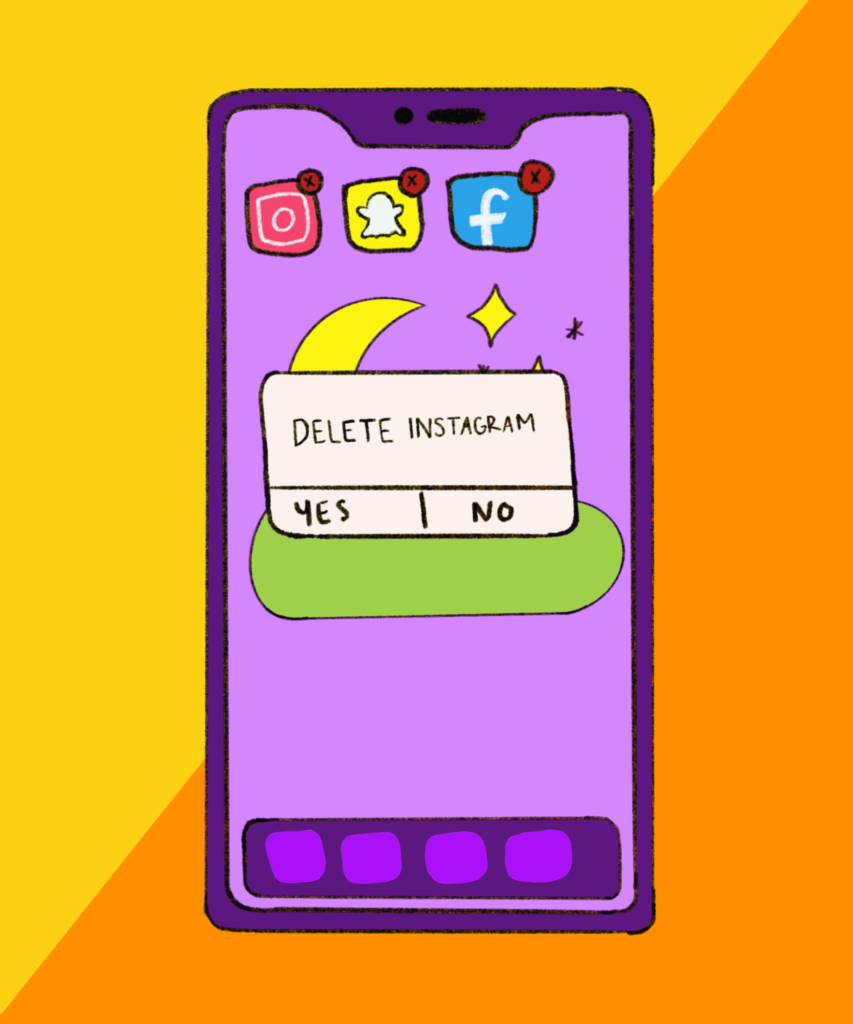
Social media is a constant in the lives of young adults. Coincidentally, this is the same age group that most Ferris students belong to. As high amounts of social media consumption become normalized, there is the question of how it affects users.
It is not uncommon to hear about celebrities, especially those around the college age, taking breaks from social media for their mental health. On Aug. 13, actor Tom Holland announced his break from social media, which he stated was due to the comments he read about himself online. The same principle can be applied to Ferris students.
In April, news broke about how harassment on YikYak, a social media app, led one Ferris student to attempt suicide. While this is an extreme case, it is an example of how what is posted and seen on social media can negatively affect one’s mental and physical health.
Senior Rebecca Cole took a step back from engaging in social media because of how it made her feel.
“[Before], I would get a lot more upset about stuff, and then I realized that I needed to, like, take a step back sometimes,” Cole said. “Sometimes it gets me upset, but I’m a lot better at realizing that and taking a step back now.”
Cole isn’t the only student who realized that, although it has some benefits, social media can make you feel negative.
“I think social media can be negative in a way. [For example], if you’re seeing others having fun—let’s say they’re out in Florida or something—that can be sometimes hard on others,” senior Adam Jason said. “But I think for the most part it’s enjoyable, seeing what others are up to.”
The way social media makes students feel can also be a bit of a distraction.
“I would still get, like, all my stuff done, and I was still doing everything that I needed to do, but I just wasn’t as happy. I would let stuff get to me… when it didn’t need to and honestly had no right to,” Cole said.
Cole also said that social media sometimes made good days feel like they weren’t actually good because social media “cast a cloud.”
When it comes to dealing with social media’s negative effects on one’s mood and mental health, the best option seems to be to step back and focus on other things.
“I just turn the phone off and just kind of occupy myself with something else other than staring at the screen,” Jason said.
Cole takes a similar approach.
“If social media is making me feel bad, I’ll just turn it off and I’ll go watch YouTube videos or read a book or something like that and not engage with [it] anymore,” Cole said.
In May 2022, Healthline reported that just one week spent off social media could significantly improve one’s mental health, citing a study done at the University of Bath. This study found that those who took a week-long break from social media had improved moods, improvements in symptoms of anxiety and depression and a better overall sense of well-being than those who did not.
So, while it may be tempting for students to spend their freetime scrolling through Twitter, TikTok or Instagram, it may be better to keep your mental health in mind and take a step back once in a while.
